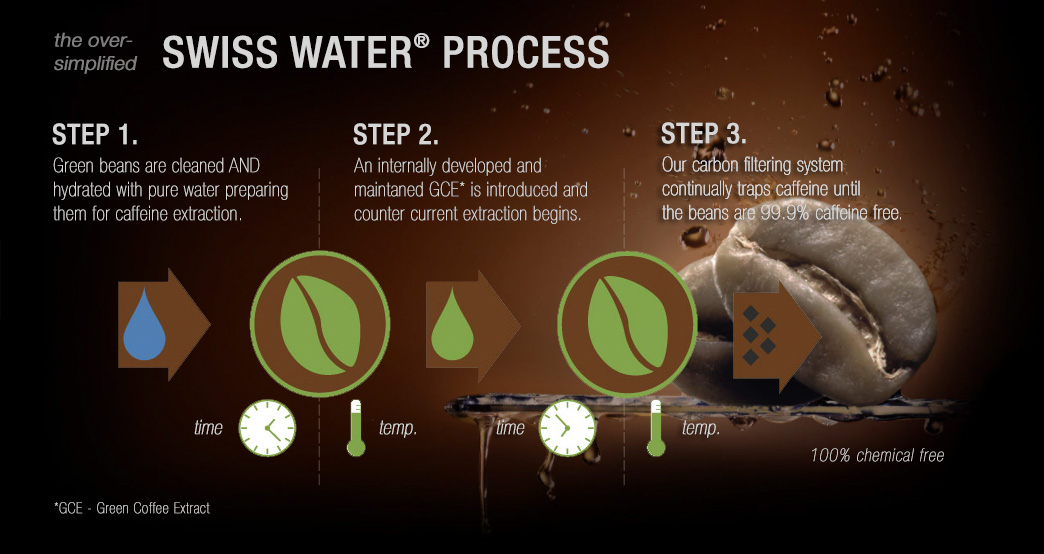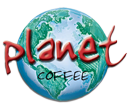Is Decaf Coffee Safe to Drink?

We discussed decaf coffee in the last post, but we want to address another big question: Is decaf coffee safe to drink? After all, decaf goes through an additional process called decaffeination. What are some methods being used to take caffeine out? Are they natural? Are they safe? A few different techniques are available for decaffeination, and understanding them may help allay your concerns about coffee contaminants.
Methylene Chloride and Ethyl Acetate
Perhaps the most common method being employed is the use of a chemical solvent called methylene chloride. While the FDA declared in 1999 that the trace amounts found in decaf coffee are too minuscule to affect your health, methylene chloride is controversial in some coffee circles.
For example, it is a fact that when inhaled in small doses methylene chloride can cause coughing, wheezing, and shortness of breath. At higher doses, it can cause headache, confusion, nausea, vomiting, dizziness, and fatigue, and has been found to cause liver and lung cancer in animals.
How about another solvent – ethyl acetate? Coffee producers sometimes state that beans decaffeinated with ethyl acetate are “naturally decaffeinated” because the compound is naturally found in some produce. But as with methylene chloride, the ethyl acetate is typically produced synthetically and carries some risks at high doses.
Now let’s consider another decaffeination process, which is 100% chemical-free.
Swiss Water Process
Another indirect method soaks the beans in water to soften them and remove the caffeine, and then runs the liquid through activated charcoal or carbon filters to decaffeinate it. The flavor containing fluid is then returned to the beans to be dried. This charcoal or carbon process is often called “Swiss water process” (developed by a Swiss company). If your coffee is labeled naturally decaffeinated or Swiss water processed, you can be assured that no harmful chemicals are used.

Many coffee experts agree that the Swiss Water process tends to produce the most flavorful coffee, because it’s good at removing caffeine and without stripping other flavorful compounds from the beans. And it is this Swiss Water process that Planet Coffee uses in order that (1) flavors are intact and (2) we ensure safety.
So, is decaf coffee safe to drink? Absolutely yes, but please make sure you get the best qualify decaf coffee from Planet Coffee Roasters!


[…] Source: planetroasters.com […]